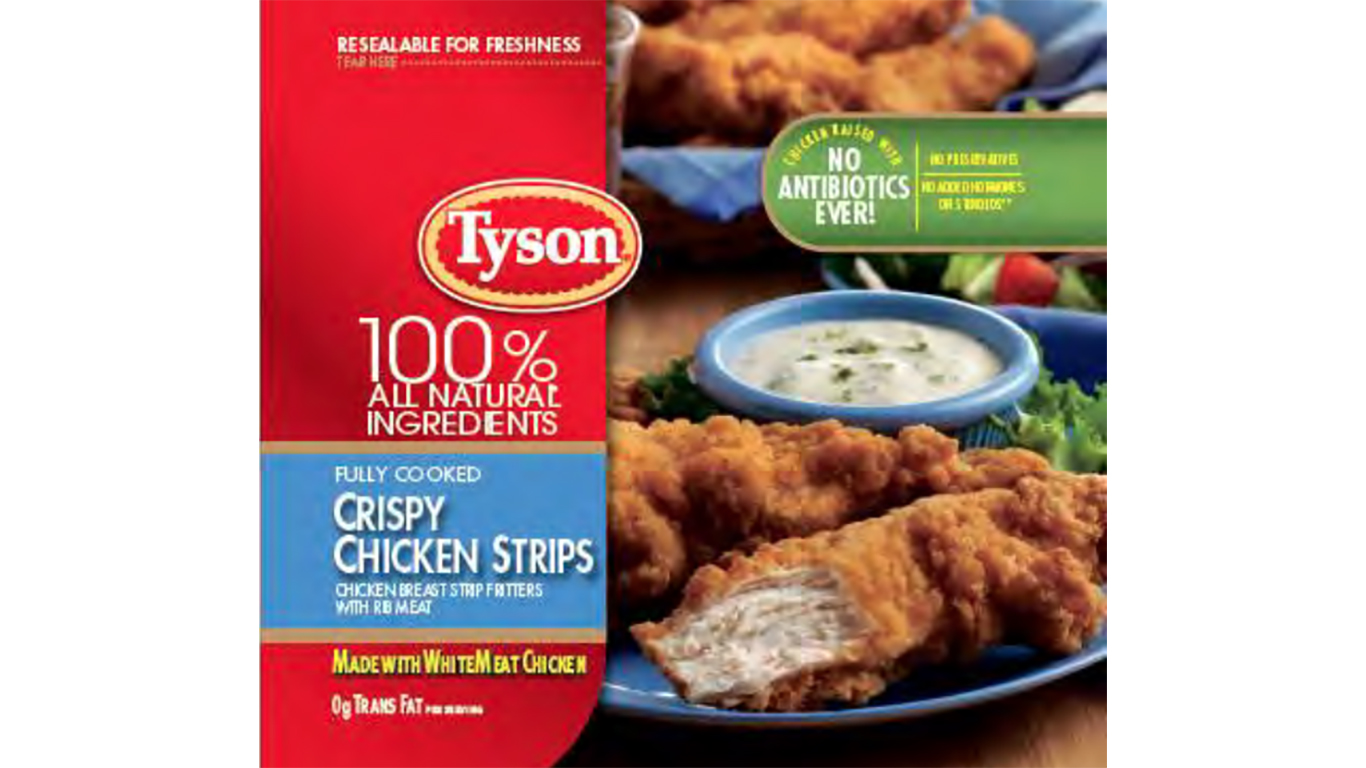Companies and Brands
Did the Coronavirus Choke Too Much of Tyson's Upside?

Published:

Food is supposed to be a great defensive sector for investors. Unfortunately, when things come unglued they can get a little crazy. That has been the case for Tyson Foods, Inc. (NYSE: TSN) over the last month with its shares falling from above $80 down to under $45. Value investors and secular trend investors alike have been combing over the ashes that have been left by a stock market in flames. Tyson should be one of those companies. Unfortunately, that’s not what its trading performance has indicated during the coronavirus malaise.
According to the independent research firm Argus, it’s a good time to buy shares of Tyson after this much weakness. Before getting into the reason for why the sell-off has been too great, investors should at least consider that Argus previously had a Buy rating already and its old $92 target price is now down at $60 in the refreshed research report.
Even with the near-term impact of the coronavirus, the Argus report notes that Tyson is well positioned to benefit from the continuous growing demand for protein. The independent research firm also has a favorable view of Tyson’s internal efforts to boost sales of prepared foods with strong demand and with high margins in that portion of the food market.
Where the current problem area comes into play is the devastating impact that is happening with near-term revenue growth as the decline in the “away-from-home dining” is being mandated whether customers would prefer that to be the case or not.
Argus lowered its Fiscal Year 2020 earnings per share (EPS) estimate down to $6.20 from $6.40 and also lowered its 20201 fiscal estimate to $7.00 EPS from a prior $7.20 estimate. The firm feels that Tyson now appears to be undervalued at only 7.1-times its 2020 EPS estimate, and that multiple is less than half of what large-cap food processors trade for.
The Argus report also points out that Tyson is selling certain non-protein businesses and acquiring others in the protein segments to focus entirely on the protein theme. Here were some of the key unit metrics:
Shares of Tyson Foods were last seen up 4% at $46.90 shortly before Tuesday’s close, but that is down from a 52-week high of $94.24 and its was an $80 stock in mid-February.
One of the big questions that should be asked about this note is if the earnings estimates have been cut enough for this fiscal year as the coronavirus impact is now looking to be longer than many of us might have hoped. Refinitiv’s consensus estimates were still seen at $6.30 in EPS for 2020 and $7.20 EPS for 2021. Tyson is still listed as having a $97.00 consensus analyst target price from Refinitiv, but investors should expect that number to come toppling down as the dust settles from the damage that has been seen in the last month.
If you want your portfolio to pay you cash like clockwork, it’s time to stop blindly following conventional wisdom like relying on Dividend Aristocrats. There’s a better option, and we want to show you. We’re offering a brand-new report on 2 stocks we believe offer the rare combination of a high dividend yield and significant stock appreciation upside. If you’re tired of feeling one step behind in this market, this free report is a must-read for you.
Click here to download your FREE copy of “2 Dividend Legends to Hold Forever” and start improving your portfolio today.
Thank you for reading! Have some feedback for us?
Contact the 24/7 Wall St. editorial team.